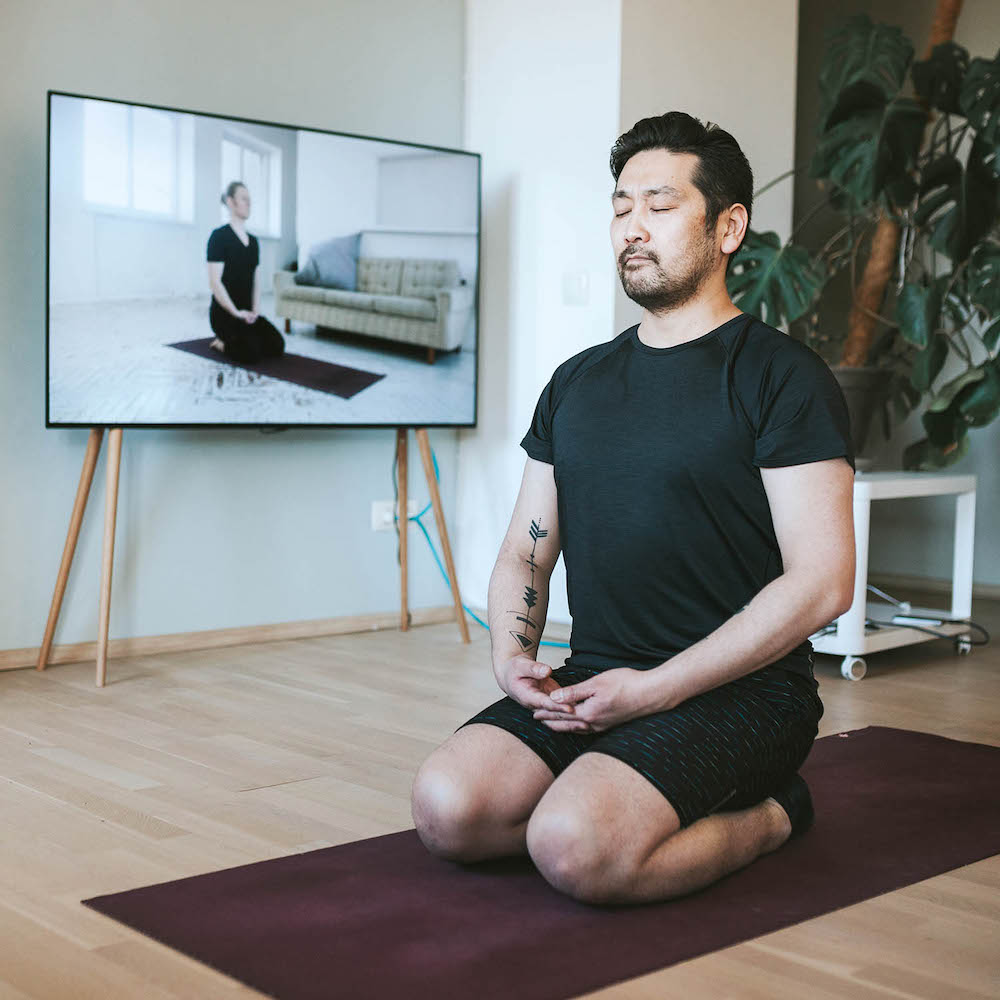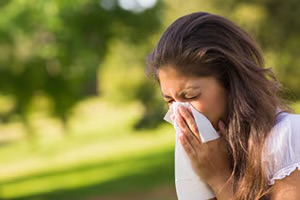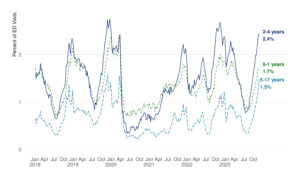April 2020
Clinical Guidelines, Scientific Literature, Info for Patients:
Mind and Body Approaches for Stress and Anxiety
Relaxation Techniques
Relaxation techniques may be helpful in managing a variety of stress-related health conditions, including anxiety associated with ongoing health problems and in those who are having medical procedures. Evidence suggests that relaxation techniques may also provide some benefit on symptoms of post-traumatic stress disorder (PTSD), and may help reduce occupational stress in health care workers. For some of these conditions, relaxation techniques are used as an adjunct to other forms of treatment.
What Does the Research Show?
- Biofeedback for anxiety and depression in children. A 2018 systematic review included 9 studies—278 participants total—on biofeedback for anxiety and depression in children and adolescents with long-term physical conditions such as chronic pain, asthma, cancer, and headache. The review found that, although biofeedback appears promising, at this point it can’t be recommended for clinical use in place of or in addition to current treatments.
- Heart rate variability (HRV) biofeedback. A 2017 meta-analysis looked at 24 studies—484 participants total—on heart rate variability (HRV) biofeedback and general stress and anxiety. The meta-analysis found that HRV biofeedback is helpful for reducing self-reported stress and anxiety, and the researchers saw it as a promising approach with further development of wearable devices such as a fitness tracker.
- Progressive muscle relaxation. A 2015 systematic review, which included two studies on progressive muscle relaxation in adults over the age of 60, with a total of 275 participants, found that progressive muscle relaxation was promising for reducing anxiety and depression. The positive effects for depression were maintained 14 weeks after treatment.
- Anxiety after stroke. A 2017 Cochrane review included one study on 21 community-dwelling stroke survivors with diagnosed anxiety. The participants used a relaxation CD five times a week for a month, and after 3 months, the participants had reduced anxiety. The reviewers concluded that there is insufficient evidence to guide the treatment of anxiety after stroke.
- PTSD. A 2018 meta-analysis of 50 studies involving 2,801 participants found that relaxation therapy seemed to be less effective than cognitive behavioral therapy for post-traumatic stress disorder and obsessive-compulsive disorder. No difference was found between relaxation therapy and cognitive behavioral therapy for other anxiety disorders, including generalized anxiety disorder, panic disorder, social anxiety disorder, and specific phobias. The review noted, however, that most studies had a high risk of bias, and there was a small number of studies for some of the individual disorders.
Safety
- Relaxation techniques are generally considered safe for healthy people. In most research studies, there have been no reported negative side effects. However, occasionally, people report negative experiences such as increased anxiety, intrusive thoughts, or fear of losing control.
- There have been rare reports that certain relaxation techniques might cause or worsen symptoms in people with epilepsy or certain psychiatric conditions, or with a history of abuse or trauma.
Yoga, Tai Chi, and Qigong
A range of research has examined the relationship between exercise and depression. Results from a much smaller body of research suggest that exercise may also affect stress and anxiety symptoms. Even less certain is the role of yoga, tai chi, and qigong—for these and other psychological factors, but there is some limited evidence that yoga, as an adjunctive therapy, may be helpful for people with anxiety symptoms.
What Does the Research Show?
- Yoga for children and adolescents. A 2020 systematic reviewof 27 studies involving the effects of yoga on children and adolescents with varying health statuses found that in studies assessing anxiety and depression, 58 percent showed reductions in both symptoms, while 25 percent showed reductions in anxiety only. Additionally, 70 percent of studies included in the review that assessed anxiety alone showed improvements. However, the reviewers noted that the studies included in the review were of weak to moderate methodological quality.
- Yoga, tai chi, and qigong for anxiety. A 2019 review concluded that yoga as an adjunctive therapy facilitates treatment of anxiety disorders, particularly panic disorder. The review also found that tai chi and qigong may be helpful as adjunctive therapies for depression, but effects are inconsistent.
- Yoga for anxiety. A 2018 systematic review and meta-analysisof 8 studies of yoga for anxiety (involving 319 participants with anxiety disorders or elevated levels of anxiety) found evidence that yoga might have short-term benefits in reducing the intensity of anxiety. However, when only people with diagnosed anxiety disorders were included in the analysis, there was no benefit. In a 2013 systematic review of 23 studies (involving 1,722 participants) of yoga for anxiety associated with life situations, yoga seemed to be helpful in some instances but not others. In general, results were more favorable for interventions that included at least 10 yoga sessions. The studies were of medium to poor quality, so definite conclusions about yoga’s effectiveness couldn’t be reached.
Safety
- Yoga is generally considered a safe form of physical activity for healthy people when performed properly, under the guidance of a qualified instructor. However, as with other forms of physical activity, injuries can occur. The most common injuries are sprains and strains. Serious injuries are rare. The risk of injury associated with yoga is lower than that for higher impact physical activities.
- Older people may need to be particularly cautious when practicing yoga. The rate of yoga-related injuries treated in emergency departments is higher in people age 65 and older than in younger adults.
Meditation and Mindfulness-Based Stress Reduction
Some research suggests that practicing meditation may reduce blood pressure, anxiety and depression, and insomnia.
What Does the Research Show?
- Mindfulness-based meditation. A 2019 review concluded that as monotherapy or an adjunctive therapy, mindfulness-based meditation has positive effects on depression, and its effects can last for six months or more. Although positive findings are less common in people with anxiety disorders, the evidence supports adjunctive use. A 2014 meta-analysis of 47 trials in 3,515 participants suggests that mindfulness meditation programs show moderate evidence of improving anxiety and depression. But the researchers found no evidence that meditation changed health-related behaviors affected by stress, such as substance abuse and sleep.
- Mindfulness-based programs for workplace stress. A 2018 systematic review and meta-analysis of nine studies that examined mindfulness-based programs with an employee sample, which targeted workplace stress or work engagement, and measured a physiological outcome. The review found that mindfulness-based interventions may be a promising avenue for improving physiological indices of stress.
- Meditation for patients with breast cancer. Clinical practice guidelines issued in 2014 by the Society for Integrative Oncology (SIC) recommend meditation as supportive care to reduce stress, anxiety, depression, and fatigue in patients treated for breast cancer. Meditation, yoga, and relaxation with imagery are recommended for routine use for common conditions, including anxiety and mood disorders (Grade A). Stress management, yoga, massage, music therapy, energy conservation, and meditation are recommended for stress reduction, anxiety, depression, fatigue, and quality of life (Grade B).
Safety
- Meditation is generally considered to be safe for healthy people.
- A 2019 review found no apparent negative effects of mindfulness-based interventions, and concluded that their general health benefits justify their use as adjunctive therapy for patients with anxiety disorders.
References
- Chugh-Gupta N, Baldassarre FG, Vrkljan BH. A systematic review of yoga for state anxiety: Considerations for occupational therapy. Canadian Journal of Occupational Therapy. 2013;80(3):150-170.
- Cramer H, Lauche R, Anheyer D, et al. Yoga for anxiety: a systematic review and meta-analysis of randomized controlled trials. Depress Anxiety. 2018;35(9):830-843.
- Goessl VC, Curtiss JE, Hofmann SG. The effect of heart rate variability of biofeedback training on stress and anxiety: a meta-analysis. Psychological Medicine. 2017;47(15):2578-2586.
- Goyal M, Singh S, Sibinga EM, et al. Meditation programs for psychological stress and well-being: a systematic review and meta-analysis. JAMA Intern Med. 2014;174(3):357-368.
- Greenlee H, Balneaves LG, Carlson LE, et al. Clinical practice guidelines on the use of integrative therapies as supportive care in patients treated for breast cancer. J Natl Cancer Inst Monogr. 2014;50:346-358.
- Heckenberg RA, Eddy P, Kent S, et al. Do workplace-based mindfulness meditation programs improve physiological indices of stress? A systematic review and meta-analysis. J Psychosom Res. 2018;114:62-71.
- James-Palmer A, Anderson EZ, Zucker L, et al. Yoga as an intervention for the reduction of symptoms of anxiety and depression in children and adolescents: a systematic review. Front Pediatr. 2020; 8:78.
- Klainin-Yobas P, Oo WN, Suzanne Yew PY, et al. Effects of relaxation interventions on depression and anxiety among older adults: a systematic review. Aging and Mental Health. 2015;19(12):1043-1055.
- Knapp P, Campbell Burton CA, Holmes J, et al. Interventions for treating anxiety after stroke. Cochrane Database of Systematic Reviews. 2017;(5):CD008860.
- Montero-Marin J, Garcia-Campayo J, López-Montoyo A, et al. Is cognitive-behavioural therapy more effective than relaxation therapy in the treatment of anxiety disorders? A meta-analysis. Psychological Medicine. 2018;48(9):1427-1436.
- Saeed SA, Cunningham K, Bloch RM. Depression and anxiety disorders: benefits of exercise, yoga, and meditation.Am Fam Physician. 2019;99(10):620-627.
- Thabrew H, Ruppeldt P, Sollers JJ. Systematic review of biofeedback interventions for addressing anxiety and depression in children and adolescents with long-term physical conditions. Applied Psychophysiology and Biofeedback. 2018;43(3):179-192.
Original Article – https://www.nccih.nih.gov/health/providers/digest/mind-and-body-approaches-for-stress-science





